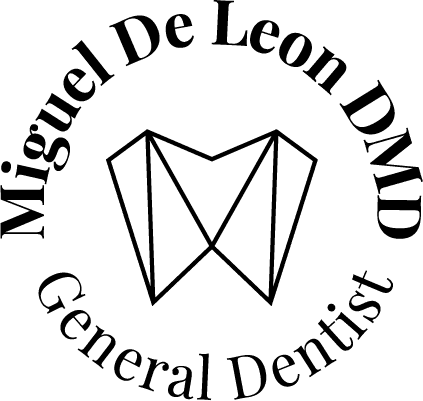Periodontal disease is one of the most common reasons adults experience tooth loss, but it often starts quietly. It affects the gums and supporting structures of your teeth, and if not caught early, it can progress into something much harder to treat. At Miguel De Leon, DMD in San Mateo, CA, we provide targeted care to help protect your gums and keep your smile strong. Call us today to schedule your personalized evaluation.

What Is Periodontal Disease?
Periodontal disease, also known as gum disease, is an infection that develops in the tissues supporting your teeth. It’s typically caused by plaque buildup that hardens into tartar, leading to inflammation and bacterial growth beneath the gumline. Over time, it can result in serious damage if it’s not treated.
- Caused by bacteria and plaque: Infection begins when plaque builds up and is not effectively removed through daily oral hygiene.
- Affects supporting structures: It targets the soft tissues, ligaments, and bone that hold your teeth securely in place.
- Can result in tooth loss: Without timely care, the disease can lead to permanent damage and eventual tooth loss.
The Stages & Symptoms
Gum disease typically starts with gingivitis and can evolve into more advanced forms if left alone. Gingivitis is reversible, but once it progresses into periodontitis, the effects become more permanent and harder to manage. That’s why knowing the signs matters.
- Gingivitis is the first stage: Gums may appear red, swollen, or bleed during brushing or flossing.
- Periodontitis creates deep pockets: Infection causes the gum tissue to pull away from teeth, forming spaces that trap bacteria.
- Advanced disease leads to tooth loss: The condition may destroy bone and connective tissue, weakening the teeth’s foundation.
The Importance Of Early Detection & Treatment
When gum disease is detected early, treatment is less invasive and more effective. It can help stop further damage, save your natural teeth, and prevent the need for more complex procedures later. The earlier you act, the better the outcome.
- Minimizes damage: Early care can prevent irreversible harm to both bone and gum tissue.
- Improves outcomes: Treatments tend to be more successful and require less time when started early.
- Supports overall wellness: Keeping your gums healthy may also benefit your heart, immune system, and more.

How Is Periodontal Disease Diagnosed?
Your dentist will examine your gums and measure the space between your teeth and gums to check for infection. These pocket measurements help identify if gum tissue is pulling away from the teeth. In some cases, digital x-rays may also be used to detect bone loss.
- Pocket measurements are taken: Deep spaces between the teeth and gums can indicate the presence of active gum disease.
- Digital x-rays are reviewed: Imaging helps reveal bone loss or structural changes that aren’t visible during a visual exam.
- Gums are closely examined: Your provider will look for signs such as inflammation, bleeding, or gum recession.

How Is Periodontal Disease Treated?
Treatment depends on how advanced the condition is when it’s diagnosed. For many patients, a deep cleaning procedure called scaling and root planing is enough to stop the infection and promote healing. If the disease has progressed, surgical options may be considered.
- Scaling and root planing is common: This non-surgical treatment targets bacterial buildup beneath the gumline to reduce inflammation.
- Antibacterial rinses may be prescribed: Medicated rinses or gels help fight bacteria and prevent the infection from spreading further.
- Surgical options are sometimes needed: In more advanced cases, gum or bone grafting may be used to restore stability and health.
Periodontal Disease Prevention
Preventing gum disease starts with the basics, such as good oral hygiene habits and regular check-ups. Daily brushing and flossing go a long way in reducing your risk of plaque buildup and inflammation. Staying consistent really makes a difference.
- Brush and floss daily: Proper technique and routine can significantly lower your risk of developing gum infections.
- Avoid tobacco products: Smoking and chewing tobacco increase the likelihood of gum disease and slow the healing process.
- Keep up with dental visits: Regular cleanings allow your dentist to catch early warning signs before they become serious.
Maintaining Gum Health
Healthy gums are essential for keeping your teeth and smile intact for the long haul. Even after treatment, maintaining your gum health is a lifelong commitment that involves both home care and professional support. The right routine can help you stay ahead of issues.
- Visit your dentist regularly: Routine visits allow for timely intervention and consistent monitoring of gum health.
- Follow a tailored home routine: Your provider may suggest specific tools or products to support your unique gum care needs.
- Watch for early warning signs: Symptoms like redness, swelling, or tenderness should be addressed before they worsen.

Stop Gum Disease Before It Stops You
Your gums play a vital role in both your oral health and your confidence, and giving them the attention they deserve can change everything. At Miguel De Leon, DMD in San Mateo, CA, we offer compassionate, expert-driven treatment for all stages of periodontal disease. With personalized care and a commitment to long-term results, we’re here to help you feel good about your smile again. Reach out today to book your visit and protect your gum health for years to come.
